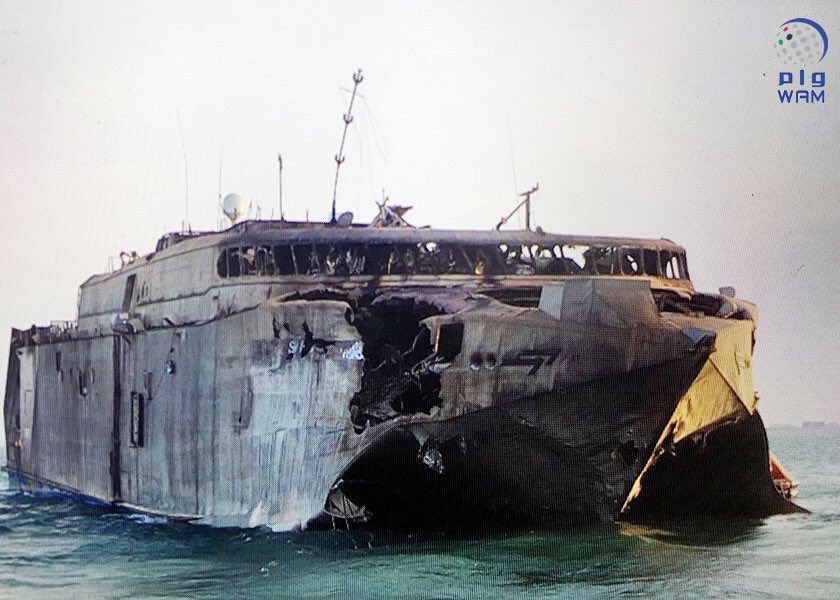...Since government forces booted Al Qaida out of major port cities in the province of Hadramout on April 24, the governor of Hadramout, Major General Ahmad Bin Bourek, has come under the spotlight apparently for playing a role along with many generals in engineering the plan that pushed out Al Qaida at stunning speed. General Bin Bourek talked to Gulf News about the operation and post-Al Qaida Mukalla, the capital of Hadramout.
What is your general assessment of the situation in the recently liberated areas in Hadramout?
The situation is improving quickly. Today is better than yesterday and yesterday was better than the day before. We are working day and night to bring about security and stability in the city of Mukalla and other regions. The most important [achievement] is putting an end to theft and pillage gangs. The security situation in Mukalla would improve much more when we deploy policemen and army soldiers in their uniform at checkpoints in order for the people to see the features of a standing army that represents the state. Also, armed police officers in uniform would be deployed on streets and in police stations. We seek to present the liberated Mukalla’s culture and civilisation as a model.
You are talking about your efforts to bring peace and security to the city of Mukalla. How about other liberated cities like Ghayel Bawazer and Sheher?
We have sent army troops to the two cities to replace local resistance committees who took charge of security after liberation. We are determined to entrench the state’s symbolism in these two cities through the presence of the army and security services. The army sappers are removing mines planted by Al Qaida in Sheher, and along roads between these two cities and interior localities.
The liberated areas, especially Mukalla, are weirdly peaceful. Many people thought that Al Qaida would retaliate for defeat by mounting deadly suicide attacks. But nothing has happened since liberation. Why?
The forces that were designated to liberate Mukalla were professionally trained in raids and clashes. During our stay outside Yemen, we prepared our plan based on intelligent information from inside Mukalla. We knew their locations and numbers. [Shortly before the operation] we were informed that Al Qaida’s professional fighters had departed the city to Hajjar valley [in Hadramout], Shabwa, Abyan and Marib. The accurate air strikes and their inability to fight off our forces prompted them into exiting.
...
How about the UAE military’s support?
The Emirati brothers had played a vital role by providing air and logistical support that helped Hadrami forces during battles. They trained the elite forces for a year, paid their salaries, armed them and would continue helping us until we stand on our own feet and make sure that the Hadrami leaders would take Hadramout to safety.
Let’s talk about Mukalla liberation plan. How did you prepare it? Who helped you?
Before Al Qaida captured Mukalla in April 2015, we had intelligence that Al Qaida in the Arabian Peninsula was gathering in Hadramout and their leaders were flocking to training and recruiting camps. They were trained in making bombs. The militants were not only from Yemen but of many nationalities including Egyptian, Syrian, American, Australian, French, British and from GCC states. Some militants who plotted the blowing up of US airlines were trained in Hadramout. Our intelligence information showed that the armed men who attacked the French magazine Charlie Hebdo and some who plotted attacks in Belgium were trained in Hadramout and got their plans from here.
Practically, Hadramout has been classified as a central breeding ground for producing and financing terrorism worldwide. Their capture of Mukalla in April last year supported the overall impression about Al Qaida. So it was imperative to create a plan to purge Hadramout of them. But we lacked abilities and training.
So how did you set up this plan?
When Decisive Storm operation began, the coalition, mainly Saudi Arabia and the UAE, backed our plan. The first step was mobilising military forces from Hadramout as the people here would not welcome foreign forces. At the same time, we gathered information about them from our agents who penetrated them.
A month before the beginning of the liberation process, a group of people, who were misled by Al Qaida’s religious banners, contacted us and said they would part ways with Al Qaida if and only if we protected them. They tipped us off about Al Qaida car bombs and training camps. We managed to get rid of Al Qaida in 20 hours as the operation came within a series of military operations by the coalition in other provinces like Lahj, Abyan and Aden. The operations weakened them to a great extent and crippled their abilities for manoeuvring.
We succeeded because all walks of Hadrami society including tribes and Salafis regardless to their religious and political affiliations took part in liberation. We succeeded in record time because Al Qaida realised that no one would fight for or cover them. They found themselves exposed. A night before marching towards Mukalla, we landed some armed Salafis from the sea who controlled the seaport and airport.
Is it true that Al Qaida planted mines inside vital facilities in Mukalla?
They planted a huge number of mines because they felt that no one would stand by them. We are in need of help from brotherly and friendly countries to help us defuse them. They planted them inside police stations, government buildings, parks, the airport and Dhabah oil terminal. The UAE sappers would not be able to completely clear them before six months.
Some media reports say that militants retreated after mediation by local tribal and religious leaders. Can you confirm?
They pushed some forces into mediating with us. After realising that they cannot fight our forces, they demanded that they should be allowed to depart to one area. We refused, as per the directives from the president that there should not be any talks with the terrorists.




 Reply With Quote
Reply With Quote





Bookmarks